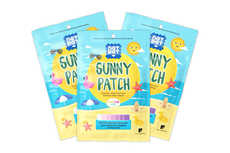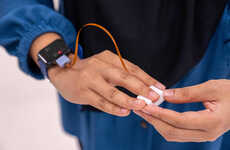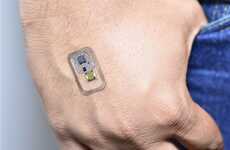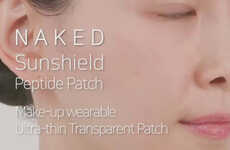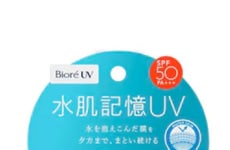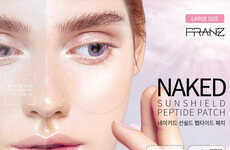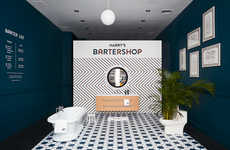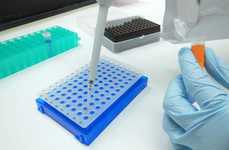
This Paper-Based Sensor Monitors Sun Exposure, Sunscreen Use and Skin Tone
Laura McQuarrie — June 11, 2016 — Tech
a group of Australian researchers created a sun sensor from paper that is able to measure sun exposure, while also accounting for the wearer's skin tone and use of sunscreen.
The paper device was created from an inkjet printer using layers of titanium dioxide and a food dye. Titanium dioxide is used to change the food dyes, which effectively become more and more discolored with more sun exposure. In order to deliver personalized results, the researchers noted using a "flexible neutral density filter," which simply reflects skin tone and the type of sunscreen in use.
While there are currently several wearable devices that promise to deliver the same kinds of results as this smart sun sensor is able to deliver, this innovation speaks to how seamless and invisible wearable technology of the future has the potential to become.
The paper device was created from an inkjet printer using layers of titanium dioxide and a food dye. Titanium dioxide is used to change the food dyes, which effectively become more and more discolored with more sun exposure. In order to deliver personalized results, the researchers noted using a "flexible neutral density filter," which simply reflects skin tone and the type of sunscreen in use.
While there are currently several wearable devices that promise to deliver the same kinds of results as this smart sun sensor is able to deliver, this innovation speaks to how seamless and invisible wearable technology of the future has the potential to become.
Trend Themes
1. Paper-based Sun Sensors - The development of paper sensors for sun exposure and sunscreen use highlights the potential for cost-efficient and eco-friendly wearable technology.
2. Personalized Sun Protection - The use of flexible neutral density filters to account for skin tone and sunscreen type paves the way for personalized and effective sun protection solutions.
3. Discreet Wearable Technology - The use of inconspicuous paper sensors underscores the trend of developing wearable devices that seamlessly integrate into daily life without drawing attention to themselves.
Industry Implications
1. Healthcare - The healthcare industry can benefit from the development of personalized and non-invasive wearable technology for skin health monitoring and sun protection recommendations.
2. Beauty - The beauty industry can explore the integration of personalized sun exposure data in skincare and cosmetic products to offer tailored solutions for their customers.
3. Environmental Sustainability - The use of eco-friendly and biodegradable materials in wearable technology, such as paper sensors, aligns with the growing focus on environmental sustainability in various industries.
5.3
Score
Popularity
Activity
Freshness

